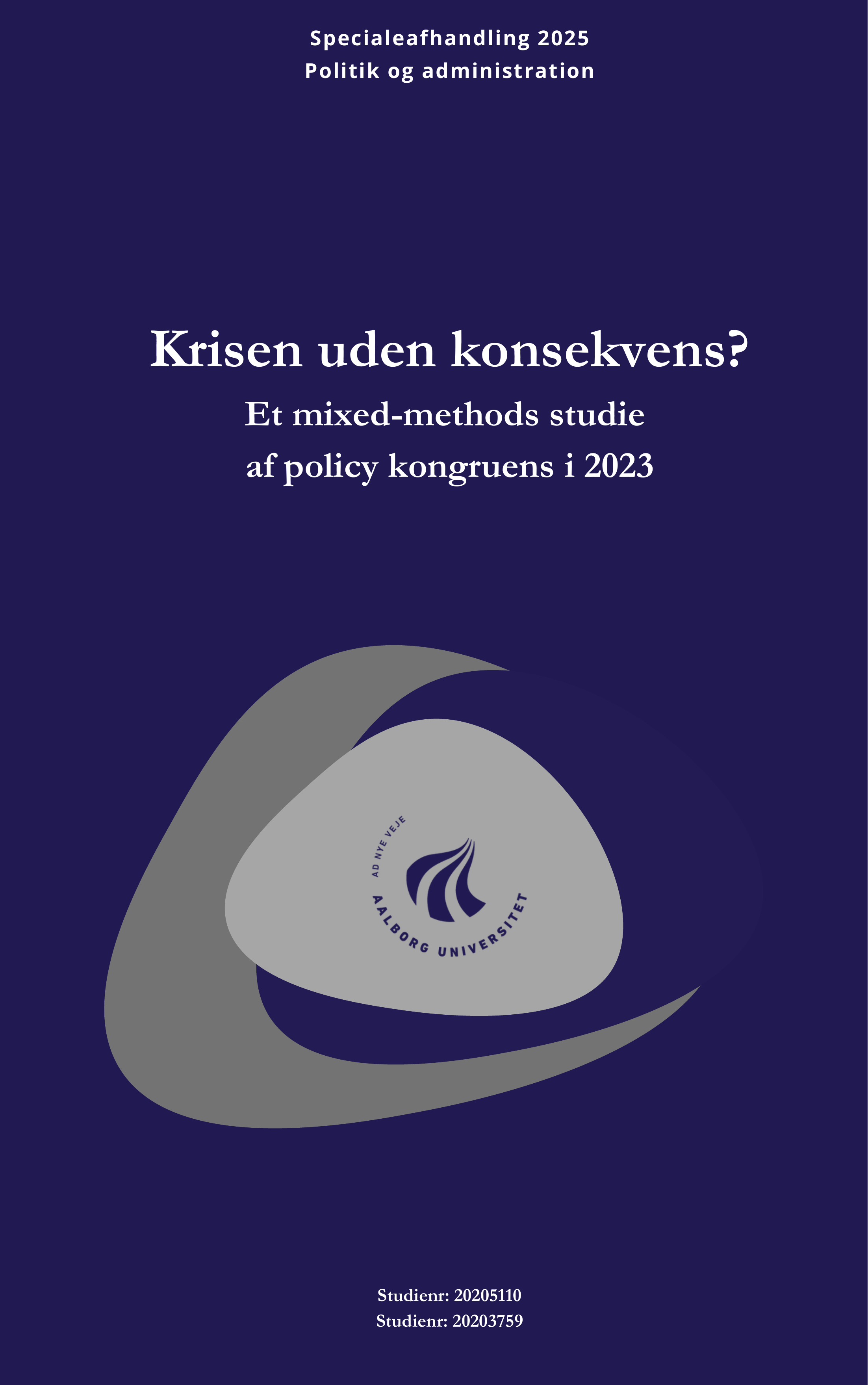
Krisen uden konsekvens? Et mixed-methods studie af policy kongruens i 2023
Oversat titel
Crisis Without Consequence? A Mixed-Methods study on policy congruence in 2023
Forfattere
Semester
4. semester
Uddannelse
Udgivelsesår
2025
Afleveret
2025-05-28
Antal sider
98
Abstract
Abstract This study investigates how the current security political situation, started by the Ukraine War, affected the degree of policy congruence between the Danish public and decision-makers in welfare policy in 2023. Drawing on theories of substantive representation, policy congruence, and crisis literature, we employ a two-step research design. First, we measure changes in public opinion and policy outputs across different welfare domains, constructing a policy congruence index. Second, based on this index, we conduct a theory-testing process tracing on the health policy domain as a deviant case, due to an observed drop in congruence. Contrary to expectations, we find that the crisis had only marginal and primarily discursive effects on policy outcomes and no substantial effect on public preferences on health care. Empirical traces of the crisis’ effects are insufficient and weak, and confined to high-level rhetorical framing in political statements, strategic documents, and fiscal agreements. In contrast, institutional path dependencies, economic strength, and persistent public support for universal welfare services emerge as the dominant explanatory factors for the basis of congruence. We therefore argue that the security crisis in its early phase functions more as a contextual backdrop than a substantive driver of political change. Our findings challenge assumptions in the literature about the transformative power of crises on democratic responsiveness and suggest that economic conditions and welfare attitudes significantly moderate crisis effects on policy congruence. The study contributes to a deeper understanding of how crises interact with entrenched policy cultures and sheds light on the resilience of democratic representation under external stress.
